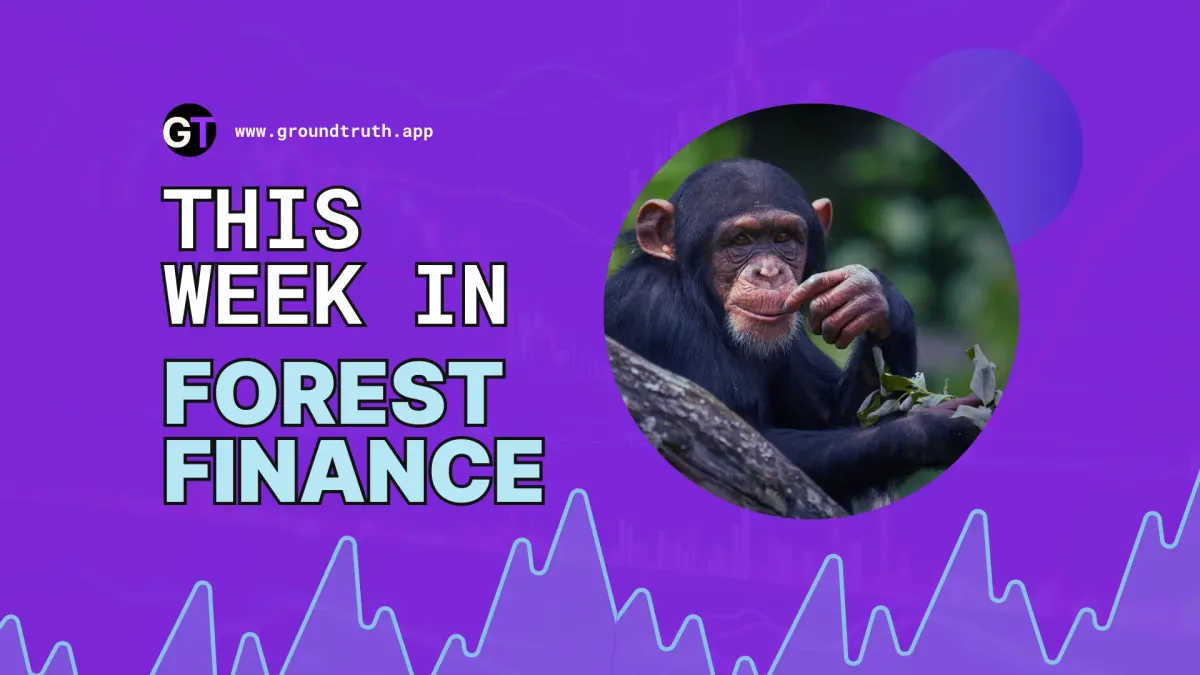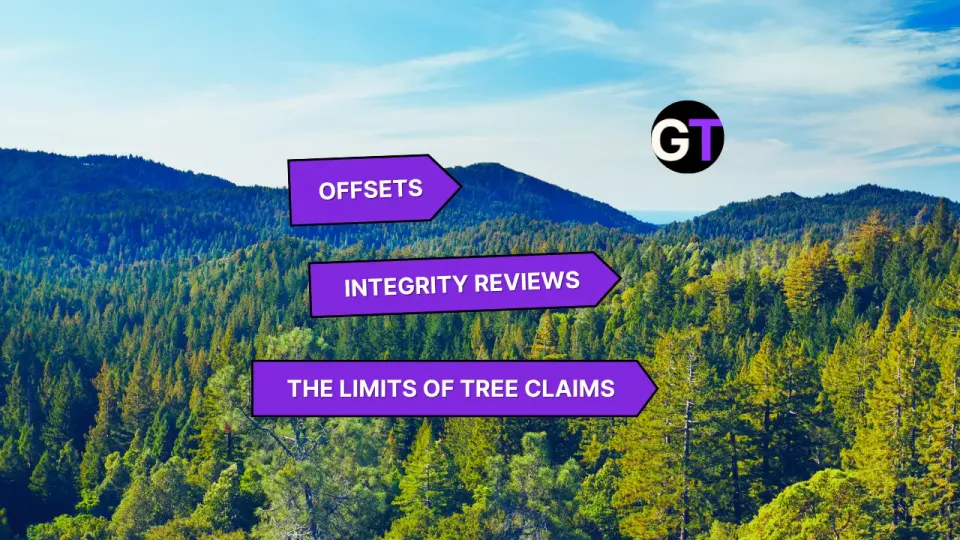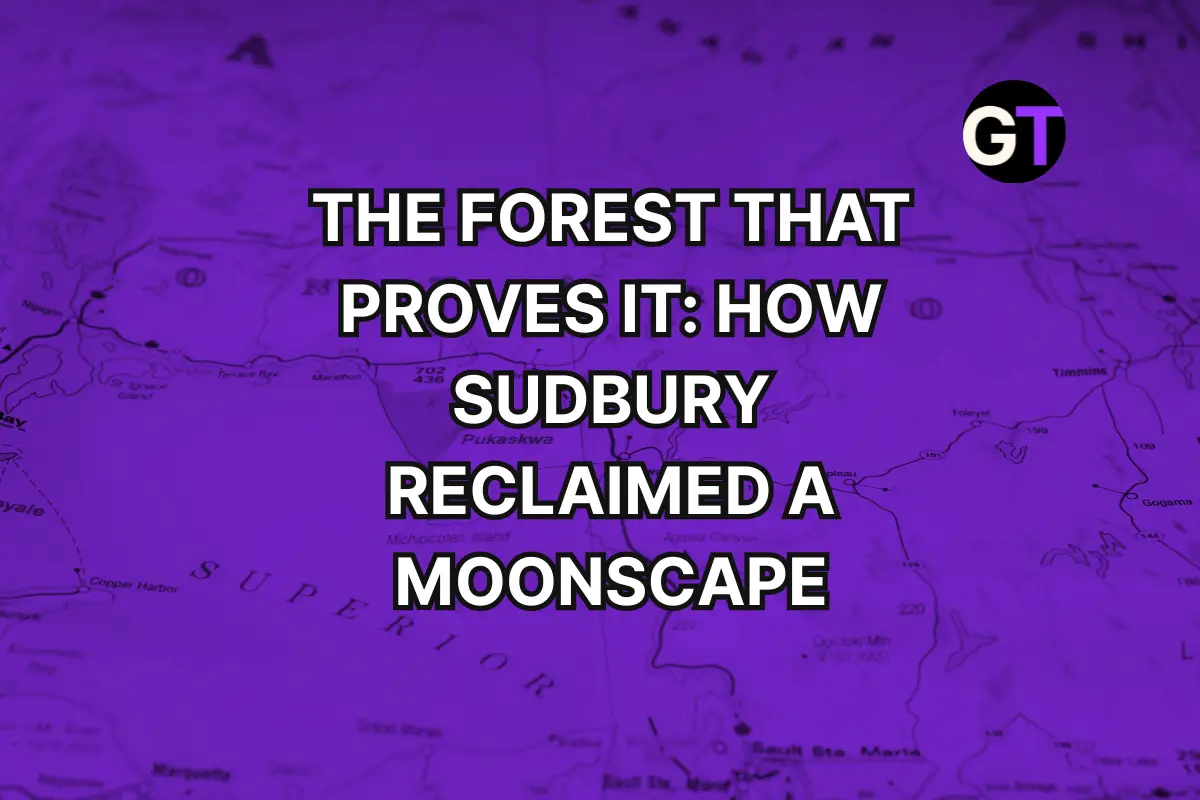This Week In Forest Finance, May 15
New grants, major deals, and reforestation tech: this week in forest finance shows where climate cash is (and isn’t) flowing.

Woodland Creation Planning Grant: Funding the Forest Blueprint
The UK’s Woodland Creation Planning Grant (WCPG) offers up to £30,500 to support landowners and public bodies in designing new, UK Forestry Standard-compliant woodlands. The funding covers everything from site assessments and stakeholder engagement to biodiversity and landscape analysis—essential prep work before planting begins. It’s not a planting grant, but it helps set the stage for one, aiming to turn thoughtful planning into actual trees on the ground.
💬 Will frontloading design help accelerate quality woodland creation across England?
👉👉 Read more at GOV.UK
UK Boosts Forest Defenses with £4M Resilience Research Fund
Defra is backing the Centre for Forest Protection with £4 million to fund 17 new projects tackling climate threats, pests, and tree resilience across Britain’s forests. Led by Forest Research and Kew, the initiative explores everything from speed breeding to squirrel-proofing, aiming to build a future-ready treescape that can outlast ash dieback, drought, and whatever else nature (or humans) throw at it.
💬 Can cutting-edge forest science help future-proof British woodlands?
👉👉 Read more at the Centre for Forest Protection
From Carbon to Kin: Rethinking Nature Markets
Nature-based solutions (NbS) may promise green finance, but they risk commodifying ecosystems—and sidelining Indigenous rights in the process. In this thoughtful critique, Steven Nitah and Robin Barr argue that nature isn’t a carbon warehouse; it’s kin. The First 30×30 Canada program offers a counter-model, centering Indigenous leadership and holistic stewardship while carefully exploring how nature credit markets can support—not undermine—community sovereignty and ecosystem integrity.
💬 Can carbon markets fund Indigenous-led stewardship without reducing nature to a price tag?
👉👉 Read more at Nature4Justice
Forest Carbon Gets a Makeover: Integrity Is In
A new report from the American Forest Foundation and Boston Consulting Group lays out a blueprint to revive voluntary carbon markets from the ground up—literally. With up to 300 million tonnes of carbon sequestration on the table by 2030, forests are poised to become climate MVPs. But the fine print matters: integrity, diversified revenue, and asset-first thinking are key to scaling forest carbon without repeating old mistakes. Programs like AFF’s Family Forest Carbon Program show what’s possible when trust and transparency take root.
💬 Can forest carbon credits finally grow into the high-integrity climate tool the world needs?
👉👉 Read more at American Forest Foundation
Setting the Bar for Biodiversity Credits: New Market Principles Released
A new white paper from the Biodiversity Credit Alliance and World Economic Forum lays down 21 High-level Principles to steer the growing biodiversity credit market toward integrity, equity, and ecological impact. The guidelines aim to prevent biodiversity credits from becoming the next “greenwashing” tool by emphasizing measurable outcomes for nature, Indigenous rights, and transparent governance. While the market is still in its early days, the principles—shaped through deep stakeholder engagement—offer a blueprint for credibility.
💬 Can these principles help biodiversity credits avoid the alleged pitfalls of carbon markets?
👉👉 Read the full framework at Biodiversity Credits Alliance
Catalyst Fund 2025: Fueling Collaborative Conservation
The Catalyst Fund is back with up to $25,000 in grants for U.S.-based Landscape Partnerships pushing forward inclusive, place-based conservation. Administered by the Network for Landscape Conservation and supported by the Doris Duke and Hewlett Foundations, this fund targets groups at pivotal moments—moving from vision to action. With a special carve-out for Tribal-led initiatives and an optional add-on for climate-informed planning, it’s all about building long-term, community-rooted stewardship.
💬 Can modest funding be the spark that scales transformational conservation?
👉👉 Read more at Network for Landscape Conservation
Offset or Off-Key? Carbify’s Q1 Snapshot of a Carbon Market in Flux
In its Q1 2025 report, Carbify dives into the chaotic charm of today’s voluntary carbon market. While the VCM is booming at $2.5B, trust is tanking—thanks to scandal-plagued registries and suspect credits. Carbify backs a shift toward tech-tracked, post-absorption offsets, where satellites, blockchain, and APIs are the new arbiters of integrity. Verified, traceable, and audit-ready is the new baseline, with high-integrity credits commanding premium prices ($50–$150/tCO₂). The message? Tech is no longer optional—it’s table stakes for anyone serious about climate credibility.
💬 Is the future of carbon offsets blockchain-bound or just back to basics with better data?
👉👉 Read more at Carbify
Microsoft’s $18M Carbon Credit Deal: A Forest-Sized Flex
Microsoft just dropped a megaton (well, 18 million of them) commitment to carbon removal, partnering with Rubicon Carbon to secure one of the largest nature-based carbon credit deals in history. The agreement focuses on long-term afforestation, reforestation, and revegetation (ARR) projects worldwide, with each credit structured as a 15- to 20-year offtake. Rubicon will handle project sourcing, due diligence, and monitoring using remote-sensing tech, all under a framework co-developed with Microsoft. The goal? To scale high-integrity carbon removal projects that might otherwise lack funding.
💬 Will the data from these ARR projects be open and transparent enough to allow independent verification and foster trust in large-scale carbon credit initiatives?
👉👉 Read more in ESG Today
Ecosia’s Climate Makeover: Beyond Trees and Into the Sun
Ecosia, the eco-friendly search engine known for planting over 230 million trees, is branching out—literally. Shifting from its one-search-one-tree promise, the platform is now investing in a broader suite of climate solutions, including solar energy projects, agroforestry, and organic farming initiatives. This strategic pivot includes backing Europe's largest climate venture capital fund, the World Fund, and deploying commercial-scale solar systems. To keep users engaged, Ecosia has revamped its impact tracker: daily searches now sprout digital "seeds," translating into tangible metrics like renewable energy generated and hectares restored. It's a move that reflects a maturing approach to climate impact—less sapling, more systems thinking.
💬 As Ecosia diversifies its climate initiatives, will it maintain transparency by providing open access to project data for public scrutiny and trust?
👉👉 Read more in edie
Veritree’s $6.5M Raise: Blockchain Meets Biodiversity
Vancouver-based climate tech startup Veritree has secured $6.5 million in Series A funding and commitments to plant 100 million trees globally within five years. Operating across diverse ecosystems—from wildfire-affected areas to mangroves and kelp beds—the company employs blockchain to create a public ledger of restoration efforts. Their tech stack includes satellites, drones, remote sensors, AI analytics, and even acoustic monitoring of bird songs to assess ecosystem health. Notably, Veritree focuses on tree planting and survival rather than selling carbon credits, aiming to provide transparent, verifiable impact for corporate partners like Samsung and SleepCountry.
💬 As Veritree scales its tech-driven reforestation efforts, will its blockchain-based transparency set a new standard for openness in nature-based climate solutions?
👉👉 Read more in GeekWire
EcoEnterprises Fund IV: $50M for Nature, Climate, and Equity in Latin America
EcoEnterprises Fund IV has secured over $50 million in its first close, aiming for a $150 million target to invest in up to 20 SMEs across Latin America focused on biodiversity conservation, climate action, and gender equity. Anchor investors include FinDev Canada, FMO, Visa Foundation, Wire Group, and IDB Invest. The fund will direct 50% of its capital to sectors like sustainable agriculture, forestry, ocean-based businesses, agri-tech, ecotourism, and renewable energy. Building on a legacy of supporting nature-based solutions and gender-smart initiatives, EcoEnterprises Fund IV continues to prioritize community-based enterprises that promote environmental and social impact.
💬 Will EcoEnterprises Fund IV provide open access to project data to enhance transparency and stakeholder engagement in nature-based investments?
👉👉 Read more in Sustained Future

Edited by Chris Harris

This work is licensed under a
Creative Commons Attribution 4.0 International License.





